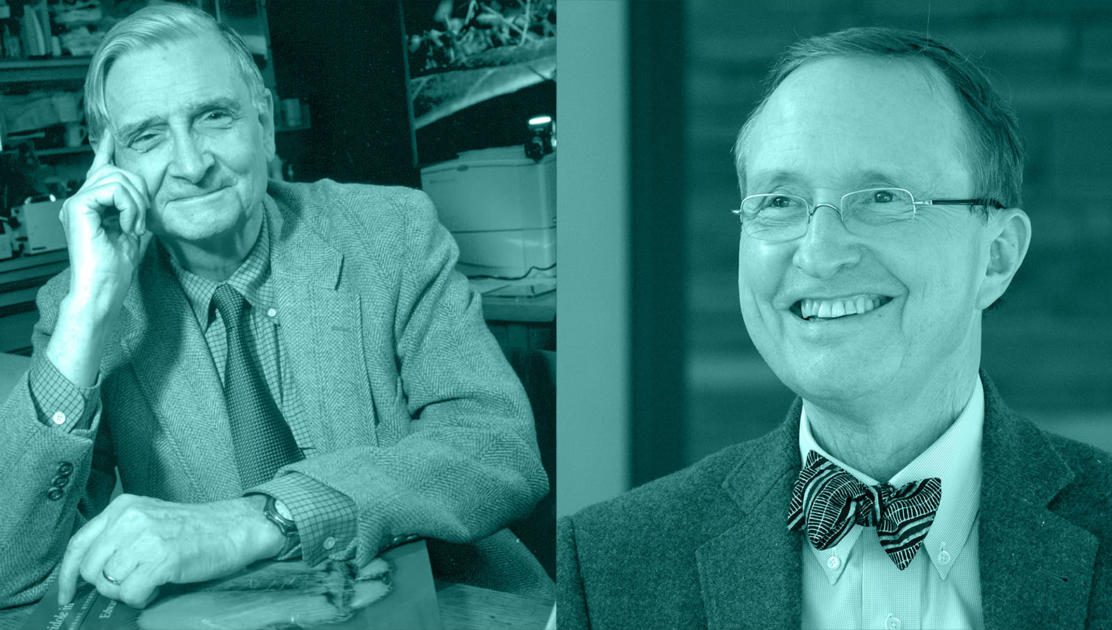Remembering E.O. Wilson and Thomas Lovejoy
We celebrate today the lives of two great ecologists: E.O. Wilson, who passed away on December 26 at the age of 92, and Tom Lovejoy, who passed away onDecember 25 at the age of 80. Each made extraordinary contributions to the field of bio-diversity and to the greater public dialog about humans and nature; they inspired so much of what we do at the Garrison Institute.
Dr. Wilson loved life — in the sense of being alive, but also the very process of life, and how it evolved in all of its majestic and mundane complexity. Dr. Wilson, who preferred to be called Ed, was an early proponent of the idea of biodiversity, capturing the diversity of life, and he spent the latter half of his life promoting its importance. Ed advocated for the protection of half of the earth’s most biodiverse lands and oceans, as essential bio-genetic reserves and generators of life’s complexity. This idea was a key source for our Pathways to Planetary Health program.
Many other ideas from Dr. Wilson permeate what we do. His book, The Social Conquest of the Earth, made the evolutionary case for altruism. Later, writing with David Sloan Wilson, he said, “Selfishness beats altruism within groups. Altruistic groups beat selfish groups. Everything else is commentary.”
Dr. Wilson also advanced the concept of consilience, integrating sciences, ethics, and religion — a holistic approach that is deeply familiar to us at Garrison.
In 2009, Dr. Wilson said in an interview that “the real problem of humanity is the following: we have paleolithic emotions; medieval institutions; and god-like technology. And it is terrifically dangerous, and it is now approaching a point of crisis overall.” Our future is uncertain, he went on, “until we answer those huge questions of philosophy that the philosophers abandoned a couple of generations ago — Where do we come from? Who are we? Where are we going?” This fall, we had the privilege of participating in a symposium with Dr. Wilson and David Attenborough that addressed some of those questions noted above. We will continue to work on the challenges he proposed.
Read this New York Times article for more details on his inspirational life. Ed’s work continues on through the E.O. Wilson Biodiversity Foundation.
Tom Lovejoy, one of the world’s foremost ecologists, was known as the Godfather of Biodiversity and is credited with creating the phrase.
Tom began his career studying the Amazon’s rainforest and its birds. From 1973 to 1987 he directed the conservation program at World Wildlife Fund (U.S.), and from there he led the biodiversity programs at many of the world’s most important institutions, from the World Bank to the Smithsonian Institute. Passionate about preserving biodiverse rich ecosystems, he created the idea of debt-for-nature swaps. His Terry Lectures, at the Yale School of the Environment, addressed the integration of religion and science, much as Ed Wilson’s Consilience did.
Tom was incredibly generous with his time, serving on countless boards, commissions, and studies — all aimed at advancing the science of biodiversity or awakening the world to its plight. He was an early and important contributor to the Garrison Institute; some of his thoughts are captured in the dialog “Healing Civilization Natures’ Way.”
Tom’s most recent book, Ever Green: Saving Big Forests to Save the Planet, will be published on March 15. For more details on Tom’s life and work, see this piece in National Geographic.
The world is a better place for the ideas of Tom and Ed. We will miss these two giants of heart and mind.
